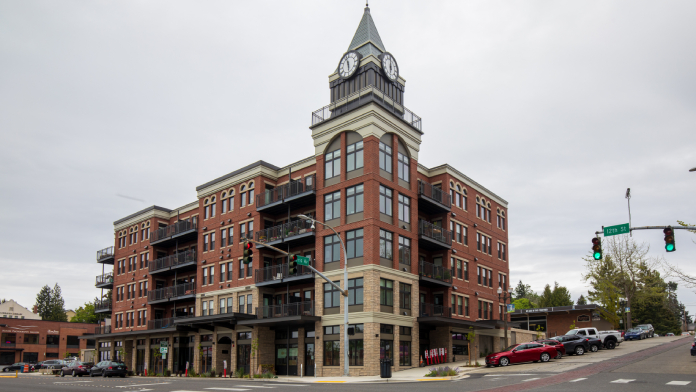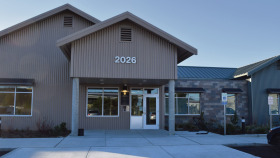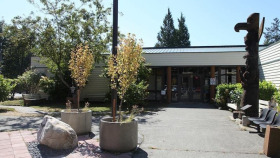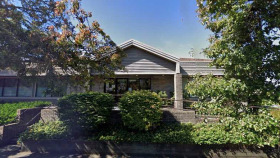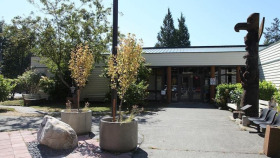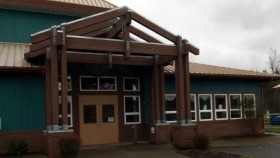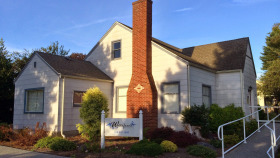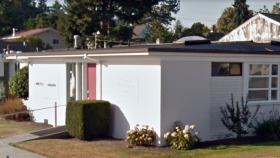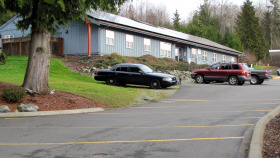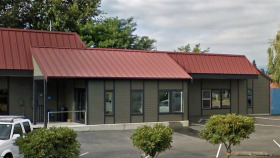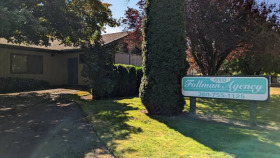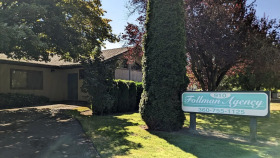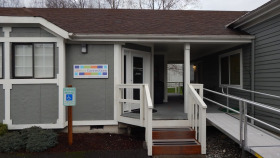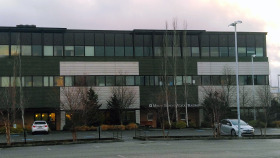Substance Abuse Statistics in Bellingham, WA
The following numbers provide an overview of the current substance abuse trends in Bellingham’s Whatcom County, WA:2,3,4
Whatcom County saw an 82.4% increase in opioid deaths between 2002 and 2021.
In 2021, fentanyl was present in 58% of drug overdose deaths.
Alcohol was present in 26% of the 2021 drug overdose deaths in Whatcom County.
20% of adults reported excessive drinking in 2021.
Levels of Substance Abuse Treatment
Washington residents have varying needs for substance abuse treatment. Multiple levels of addiction treatment are available to meet those needs.
Detox
The detox process safely clears your system of all drugs and alcohol. This initial step takes place in a hospital or inpatient setting, where medical personnel can supervise and make you comfortable during withdrawal.
Residential or Inpatient
Residential treatment typically involves group and individual therapy, family therapy, medication, and other recreational therapy methods. Participants receive these treatments while living at a facility under 24/7 supervision.
Partial hospitalization programs (PHPs)
PHPs are less intensive than inpatient, because you only remain at the facility during treatment times. Methods of treatment usually involve some of the same methods used in residential care.
Intensive Outpatient Programs (IOPs)
IOPs provide several hours of treatment spread throughout the week. This often includes individual and group therapy. Washington residents may transition to IOPs after completing a residential or PHP program.
Standard Outpatient
Standard outpatient programs involve two or three hours of care per week. This treatment typically takes place at an outpatient clinic or at a therapist’s office. This level of care is appropriate for individuals who are highly motivated and have strong support systems.
Aftercare
Aftercare includes supportive, ongoing treatment such as 12-step groups, transitional housing, or other accountability groups. The aim of this support is relapse prevention.
How to Pay for Drug Rehab in Bellingham, Washington
Private Insurance
The Mental Health Parity and Addiction Equity Act requires all insurance providers to cover substance abuse treatment to some extent. Since each plan differs regarding specific coverage, Washington residents must check with their provider to confirm exactly what is covered under their plan.
Washington Medicaid
Washington Medicaid is a government program for low-income residents that provides health coverage for individuals and families whose income is below specific levels. To use this program, residents must qualify and apply for Medicaid coverage, and the treatment facility must accept Medicaid as a method of payment.
Washington Medicare
Medicare is a government program that provides health insurance coverage for Washington residents aged 65 or older and individuals with certain disabilities. Not all rehab facilities accept Medicare as a payment method, so it’s important to research each program to determine if Medicare benefits will apply to their services.
Sliding Scale Rehabs
Sliding scale rehabs allow Washington residents to pay only what they can afford for treatment, based on their income. To qualify, residents must usually provide proof of income.
TRICARE in Washington
TRICARE in Washington (West region) provides health insurance coverage for U.S. military personnel, veterans, and their families. This coverage includes addiction treatment services, but not all plans offer the same amount of coverage.
IHS-Funded Drug Rehabs
Indian Health Service (IHS) rehabs provide free or low-cost treatment for Native Americans and Native Alaskans. This program is available even if the individual has other methods they could use for payment.
Traveling to and Within Bellingham, WA
 Snow-capped Mount Baker provides a picturesque backdrop for the coastal city of Bellingham, WA. The town is the last major city along the coastline before the land becomes Canadian. The shores of Bellingham Bay, North Cascades National Park, and the Salish Sea provide impressive views and an abundance of outdoor attractions. Within the city, well-preserved historical areas add further charm and appeal.
Snow-capped Mount Baker provides a picturesque backdrop for the coastal city of Bellingham, WA. The town is the last major city along the coastline before the land becomes Canadian. The shores of Bellingham Bay, North Cascades National Park, and the Salish Sea provide impressive views and an abundance of outdoor attractions. Within the city, well-preserved historical areas add further charm and appeal.
For those traveling to Bellingham, WA for substance abuse treatment or to visit someone in treatment, here are some helpful tips to guide your travels.
- Bellingham International Airport is located in Bellingham, and offers flights on Alaska, Allegiant, Southwest, and San Juan Airlines.
- Washington Transit Authority offers a BusTracker App to make accessing mass transit simple and convenient.
- Bellingham is very walkable and bikeable, with many errands accomplishable on foot, and many bike lanes to make biking convenient.
- Must-sees in Bellingham include Whatcom Falls Park, Fairhaven Historic District, and Spark Museum of Electrical Invention.
- Bellingham is a popular spot for adventure activities, and is one of the top mountain biking destinations in the country.
- If you have time for a scenic drive, check out Chuckanut Drive, a 24-mile scenic stretch offering stunning views of the San Juan Islands and Samish flats.
- Downtown Bellingham is a go-to hot spot for live music, festivals, and other year-round activities.
- Locals consider the north part of the city to be the safest area of Bellingham.
Washington Drug and Alcohol Laws
Laws in Washington include the following regulations regarding substance use and misuse:1,2,3
Drug Courts: Washington residents who are charged with a first-offense, non-violent substance-related crime that does not involve DUI may be eligible to attend court-ordered rehab instead of serving jail time.
Good Samaritan Law: Washington’s Good Samaritan Law is designed to encourage people to call for medical assistance during an overdose. The law protects those who call 911 from prosecution for minor drug-related charges.
Naloxone Access: Washington state laws allow anyone at risk of drug overdose or who may be in a position to help someone experiencing an overdose to obtain and administer naloxone. Additionally, doctors may prescribe naloxone directly to an organization such as a homeless shelter, and some pharmacies can dispense naloxone to individuals without a prescription.
DUI Laws: In the state of Washington, the following drug paraphernalia is illegal, and possession of it is considered a misdemeanor punishable by up to 90 days in jail and a $1,000 fine.
- Cocaine spoons or vials
- Scales and balances
- Hypodermic needles or syringes
- Equipment used to test strength and purity
- Kits to process or manufacture illicit substances
- Chemicals used for cutting or diluting illicit substances
- Mixing devices
- Packaging equipment
- Pipes
Marijuana Laws: Marijuana is legal for both medical and recreational use in Washington. Adults 21 years and older can legally possess up to one ounce of cannabis, 16 ounces of marijuana-infused solid product, or 72 ounces in liquid form. All marijuana must be purchased from a state-licensed facility and consumed on private property. Driving under the influence of marijuana is illegal and punishable by jail time, license suspension, a $3,500 fine, insurance premium increase, and ignition interlock requirements.
Resources
- Whatcom County Jail to provide medications necessary to treat opioid addiction in landmark settlement proposed in civil rights lawsuit. (n.d.). American Civil Liberties Union. Retrieved October 14, 2022, from https://www.aclu.org/press-releases/whatcom-county-jail-provide-medications-necessary-treat-opioid-addiction-landmark
- Washington state opioid trends: Deaths. (n.d.). Retrieved October 14, 2022, from https://adai.washington.edu/WAdata/deaths.htm#showdiv1
- Whatcom County Medical Examiner. (2021). WHATCOM COUNTY MEDICAL EXAMINER Annual Report 2021. https://www.whatcomcounty.us/DocumentCenter/View/66047/2021-Annual-Report
- County health rankings & roadmaps. (n.d.). County Health Rankings & Roadmaps. Retrieved October 14, 2022, from https://www.countyhealthrankings.org/app/washington/2021/rankings/whatcom/county/outcomes/overall/snapshot

